- Home
- Rose Tremain
Rosie Page 6
Rosie Read online
Page 6
Aside from the sawmill games, we spent a lot of time jumping in and out of the hotel swimming pool, wearing our ridiculous rubber bathing hats, uncomfortable ruched swimming costumes and blow-up water wings. We took my dolls, Mary and Polly, for walks, suitably dressed in their Brownie uniforms, which I thought looked a bit Swiss. We talked pretend Swiss-German and made up words that made Nan laugh. We were given a little money to buy tiny Swiss flags and wood-and-elastic bracelets in the shape of edelweiss flowers, which we wore for years and years. We petted the St Bernards owned by the luggage porters and longed for a dog of our own. We contracted diarrhoea from eating too many raspberries.
One day, we took the funicular train up to the first stop on the Jungfrau and marvelled at finding ourselves in the snow in the middle of summer. We stayed up for supper in the hotel dining room and sang songs to Nan before we went to sleep: (‘Barbara Allen’, ‘Kelvin Grove’, ‘Silent Night’). Years later, when Nan was dying (in 1964, the year I finally got to university), she remembered this singing; our children’s voices carried out beyond the room into the mountain dusk.
Back home in London, we resumed our school routine.
We’d both learned to read early, helped by Nan and by the Francis Holland School’s emphasis on reading and writing. Jo, whose bedroom was reached by a strange little passageway, running behind what Jane called the ‘nursery bathroom’, used to enjoy tucking herself away in there ‘for a lovely read’, and I can vividly remember lying on the nursery hearthrug and reading the books of Joyce Lankester Brisley. I never connected emotionally with her highly successful Milly-Molly-Mandy series, but adored her Adventures of Purl and Plain. Purl and Plain were two little wooden dolls, named after homely knitting stitches, with hinged legs and arms, pointy noses and painted-on hair: ‘At first sight the two dolls seemed as if they might be rather prim and proper. But they weren’t. They just loved adventures. They were as pleased as anything if they could fall out of the window or into the coal-bucket.’
What I liked most was how huge the world seemed to Purl and Plain and how familiar things, seen through their eyes, could become exotic and provide them with the adventures they never ceased to long for. For them, the hearthrug was a jungle, the bath a ski slope and knitting needles their ski poles. The attic was a terrifying universe, full of mousetraps, which risked breaking their legs. They could make a meal out of fried apple pips, but also wanted to be ‘artists in cooking’, confecting soup out of a drop of milk, green and red watercolour paint, candle wax and blue and yellow beads.
Precisely because these stories were rooted in familiar things, which could, in the imagination, become other things, I preferred them to Alice in Wonderland, where I was being asked to believe in grotesques, or even sympathise with their baffling antics. It has always seemed to me that for the novelist, it is a harder (and more grown-up) task to imagine the real world afresh, making it seem both familiar and yet new, than it is to imagine goblins or elves or even people made out of playing cards. I read Alice with Nan and our edition had illustrations by John Tenniel, which I eventually came to admire, but as a child, I could never care much about Alice. I remember thinking, I’m really glad this bossy little girl with her hair band and her sticking-out dress isn’t in our rounders team at school …
What else did we read with Nan, sitting by the nursery fire? We loved things that made us laugh: A. A. Milne’s poems from Now We Are Six, especially ‘The Old Sailor’, about a shipwrecked mariner who is so overwhelmed by the tasks he might undertake to save himself that he just gives up on all of them and waits to be rescued. I always used to make sure I was the one to read the last stanza:
And so, in the end, he did nothing at all,
But basked on the shingle wrapped up in a shawl.
And I think it was dreadful the way he behaved –
He did nothing but basking until he was saved.
‘Nothing but basking’ I thought was a wonderful phrase. I used to imagine my parents doing ‘nothing but basking’ on the Riviera. When we were in Cornwall with the Trusted family, Jane and Auntie Eileen seemed to do nothing much but bask, while we ran in and out of the sea with our surfboards or tried to compete with Jo’s beautiful sand sculptures.
Nan admired Robert Louis Stevenson’s A Child’s Garden of Verses, written in 1885, which she told me had been a favourite book of Peter Taylor’s and must have reminded her of her life with him, now lost to her. I can remember her reading ‘The Land of Counterpane’ to me when I was ill – which I quite often was, probably after walking to and from school every day through London’s terrible smoke-polluted air:
When I was sick and lay a-bed,
I had two pillows at my head,
And all my toys beside me lay
To keep me happy all the day.
I remember feeling worried that the boy in the poem had more toys than I did. The child has ‘ships in fleets’ and enough little houses to ‘plant cities all about’. Perhaps Peter Taylor had also had toy soldiers and model houses? Perhaps his ‘land of counterpane’ had been complete in the way that Stevenson liked it to be, in a way that mine could never match?
All I had were Piggy, Mary and Polly, some pretend plates of food made of papier mâché and some doll’s house furniture and two tiny occupants of the doll’s house Jo had named Ebb and Flo. Ebb and Flo were made of pipe cleaners, and could be bent into any attitude of delight or despair that one chose. I also had a torch and could contrive Japanese shadow plays on the walls with the dolls. And I worked at my ‘Knitting Nancy’, a device made out of a cotton reel and four nails onto which you wound some wool, looping it round and over the nails with a crochet hook in some cunning way to make a woollen rope that began to come out of the bottom of the reel like a tiny snake. These snakes you could fashion into ‘useful mats for grown-ups’, the kind you hoped your mother might use to stand her glass of water on at night.
After my mother died in 2001, as Jo and I were sorting out her house, I found a little mat, made in pink and yellow wool on my Knitting Nancy, never used, I think, to stand a water glass on, but carefully tucked away with some old photographs in a drawer. I presume Jane had concluded that the colours were wrong for the decor of her room, looking too much like a Battenberg cake to be displayed. Yet she hadn’t thrown it away. She, who threw so much away, had kept this. Perhaps she remembered all the hours of work and dropped stitches that had gone into it?
I can recall how time stretched out eternally when I was ill as a child, as if a minute had taken onto itself some heavy burden that prevented it from moving past itself and on. When I read ‘The Land of Counterpane’ now, I can summon this up, this feeling of being held in a strange, dreamlike limbo – in a place almost as dark and subject to alteration as Alice’s Wonderland.
The word ‘counterpane’ I always equated not with a proper bedcover, but with the green eiderdown on my bed in London. In my novels, in which eiderdowns – mercifully long superseded by duvets (except, I am told, at Balmoral, by order of Her Majesty) – occasionally feature, they are never described as being any other colour than green. Indeed, it’s hard for me to imagine that they could be any other colour than green, for this is what I see in my own ‘land of counterpane’: my bed by the wall, papered pink, torn by me in places, to try to make words and pictures with my fingernails; Nan’s bed, ready for the night, with her slippery nightdress spread out. A bedside table on which stands a tiny clock and my torch and the book, from Boots library, that Nan was reading at the time, probably a novel by Pearl S. Buck.
I move round my room in my mind and I see Nan’s little dressing table with her Mason Pearson hairbrush and a saucer of hairpins, then a plain white wardrobe, in which, in winter, we forced hyacinth bulbs in china bowls in its useful darkness. And then the window, facing north, with some thin curtains, also green, and beyond the window, the flat roof, where the pigeons and sparrows gathered under the great secret canyon of the back walls of a 1930s block of cheap flats, Nell Gwynn House.
I used to imagine that nobody saw this part of Nell Gwynn House but us. I presumed it wasn’t meant to be seen, because this was where – from the dimly lighted windows – Nan and I sometimes heard people screaming and crying.fn3
I arrive back at my bed. I am in it, with my arms resting on the green eiderdown, but Nan is not there. Nan is having an evening off, spent with her cousins, Mary and Emmy, in Battersea. I am alone with my trio of toys, keeping as quiet as I can be, so that I’ll be able to hear Nan’s key turning the front door latch, two floors down, and know that, once again, I am safe.
I think I was about six when Nan took Jo and me to Brighton for the day. The idea was probably that we breathe some seaside air, but the day was cold and windy and so we retreated from the freezing beach to a small fairground, where Nan bought us candyfloss.
After a ride on the carousel, and looking longingly at the dodgem cars but not being allowed to go on them (‘Darlings, I think Mummy would be cross if you rode on those. You might bump your heads, or get your nice dresses in a tangle, you see?’), we saw a sign for a fortune teller and persuaded Nan to pay the sixpence to have her fortune told.
She went into a tiny booth, screened by a curtain, and Jo and I waited outside, trying to imagine all the amazing things that could happen to Nan in the future, like getting to meet the King and Queen or winning the football pools. But when she came out, we were dismayed. Nan told us that it had been predicted she would shortly go away ‘on a long journey’. Jo began to cry. Nan soothed her by saying that fortune tellers were ‘just pretending to know things’. But why, we reasoned, would anyone pay sixpence to be told things that weren’t true? How could we be sure they weren’t true?
From that moment, we were terrified by the idea of this ‘long journey’. We knew it couldn’t include us. And sure enough, a few months later, Nan was called away. Her sister Judy had broken her leg, and Lilian, with whom Judy shared a house, was recovering from a long illness. Nan had to go and take care of them both. We had no idea how long she would be gone, or indeed if she would ever come back.
Jane and our father no doubt conferred and discussed their own ability to look after us for a while. Could they manage it, with the help of the live-in cook, Mrs Hughes (known as ‘Hughesie’), and the daily cleaner, Mrs Warburton? I’ve often imagined the conversation:
‘Hughesie will help,’ says Keith.
‘Don’t be silly,’ says Jane. ‘Hughesie can’t possibly get our late breakfast and do the walk to school.’
‘I could do the walk to school,’ volunteers Keith.
‘Don’t be silly,’ repeats Jane. ‘You’ve never ever been there. You don’t know where it is.’
‘Yes I do. It’s somewhere past the newsstand in Sloane Square where they buy their mag with Lettice Leefe in it. Have you read the Lettice Leefe picture story? The whole idea is actually quite amusing.’
Jane ignores this and asks: ‘Who will get their tea?’
‘Well, you could. It’s only bread and butter and Marmite, isn’t it? Or Hughesie will get it.’
‘And who will put them to bed?’
‘I suppose Hughesie will.’
‘Don’t be silly,’ says Jane for the third time. ‘You’re asking too much of Hughesie. Then she’ll get ill and there will be no more boiled tongue with caper sauce.’
‘Oh,’ says Keith. ‘Well that puts a spanner in it. No caper sauce, eh? I suppose we’ll have to pay for a new nanny.’
She was called Nanny Collins.
She was a thin, anxious woman of about fifty-five, with eyes that stuck too far out of her face and hairs on her chin, like some creature in Alice in Wonderland. In the night, lying next to me – just that tiny distance from my own bed – she snored and growled.
Jo and I cried and sulked. Jane sent for us and told us we were being unkind. Nanny Collins was a ‘perfectly nice woman’ and we were behaving like spoilt brats.
I think we tried to be better. We refused, still, to hold her hand on the walk to school. I began sleeping with a pillow over my head. But we let her read to us and put her scratchy face on ours, to kiss us goodnight.
In secret, however – shown only to Jo – I began a series of drawings of grotesque people, and I know that these were born out of my dislike of Nanny Collins, which I was unable to conquer. I called the series Big Heads and Tiny Bodies. All the faces were disfigured by hair-sprouting moles and lumps, and eyes on springs, popping out of their ugly faces. The bodies were small and limp, or else there were no bodies, only two thin legs, sprouting straight out of the chin and buckling under the awful weight of the head.
Jo sometimes perfected my grotesques for me, adding horrible hair or skull-and-crossbones earrings. But ugly as they were, they gave me the idea that perhaps, after all, Jo and Aunt June were not the only ones in the family who could draw pictures. By the time we were sent away to school, I drew and painted quite well.
How long did Nanny Collins last? Was it weeks, or months? If the time was miserable for us, then it was also surely miserable for her. And as our parents suggested, she was probably a perfectly nice woman. She just wasn’t Vera Sturt, our Nan.
I don’t remember enduring a school holiday with Nanny Collins. She never came to the Trusted house in Cornwall. But I don’t remember the day she left and Nan came back either, which is odd. We must have longed and longed for that day. And then it got lost in my memory somehow. Perhaps it was that Nan had been so present in our minds while she was away nursing Lilian and Judy that there was some kind of imaginative continuum joining her absence to her reappearance. In she came and our world resumed its former shape, without any awkwardness or fuss or reproach.fn4 She was back. That was all that mattered.
And Nan had saved her sister Lilian, a woman I came to know very well a few years later, when I was taken to stay at Meadows, the house Lilian shared with Judy in Dogmersfield in Hampshire – and where Nan stayed until Sissy died and she inherited Sissy’s small cottage, also in Dogmersfield.
This was after the great Casting Away, after we’d been sent to Crofton Grange School and Nan had left us. We’d been promised that she would come back for part of each holiday – to the new house, Frilsham Manor, in Berkshire, which our stepfather, Ivo, had bought. Jane had been made to accept how much we both loved Nan, and to have Nan around during the school holidays no doubt seemed useful to her and Ivo.
What neither of them had bargained for was seeing one of us sent home during the school term. But in my first year at Crofton Grange, I was taken ill with appendicitis, rushed to hospital in Ware to have my appendix taken out, and sent home. We were midway through the summer term.
Jane did her best. I remember that we did some sewing together, confecting a new face for Piggy, whose nose had suffered a terrible burning in front of the nursery fire and was now in shreds. Jane was patient and careful about this. We bought some soft pink fabric in Newbury to match the original stockinet. When the moment came to remove Piggy’s eyes, she sent me out of the room and told me to stay out until they were sewn on again in the new face. The operation was a grand success.
Jane was happier now, in a big, comfortable country house, with a man who loved her far more than Keith had ever done, but there was still a limit to how much mothering she was prepared to do. So it was decided I would go and stay with Nan at Meadows.
I was eleven years old, perhaps rather noisy and agitated, feeling everything far too deeply, difficult to tame and calm. I should remember, too, that Jane and Ivo were still in their honeymoon period. They had found a new kind of happiness at Frilsham Manor and they didn’t want this to be disturbed. They’d assumed that the children would be safely away until July.
So a suitcase was packed for me and Ivo drove me to Meadows. A camp bed was put up for me in Nan’s room. Lilian and Judy welcomed me with a tea of boiled eggs and bread and butter. I was told the eggs came from chickens Lilian kept in a pen at the end of the garden, and that I would be able to help with caring for the birds. And I remember
telling Lilian that I knew how to do this because Jo and I and our cousins had done it at Linkenholt, helping Mr Daubeny. So straight away, I was given this lovely task, of feeding the hens each morning and helping to collect the eggs.
Children love tasks – the feeling of being trusted with something important; the joy of doing it, wrong or right. Bossy, perfectionist parents who insist on doing everything themselves, in case their children make mistakes, are rewarded by having to suffer anxious kids. And the time I spent at Meadows, with its routine of caring for the chickens, was very happy. If I sometimes wondered why my mother had sent me there, when there was now a beautiful new home for me to be in, then Lilian and Judy must surely have wondered about it too. Why did they and not my mother have the burden of caring for me? But both these sisters had about them the same quality of gentleness I so loved in Nan, and they treated me with great kindness.
I remember that the room I shared with Nan at low-lying Meadows had a very small window, and that when I looked out of this each morning, there was almost always a strange blue mist covering everything and a sun like a silver coin in the sky. And then the mist would lift and I would stand at the window and see water at the end of the garden – water with no hint of a ripple on it, sliding by in a slow green drift. And I was told by Lilian that this was a man-made canal, down which boats would still pass and where, if I was very still and quiet at its edge, I might see water snakes.
Nan and I spent a lot of time walking along the banks of the canal. I both wanted to see water snakes and didn’t want to see them. Rising up from the muddy bottom of the water were dark brown water weeds, moving and bending in the slow current, and I can remember asking Nan whether these slimy things were ‘pretending to be water snakes’.

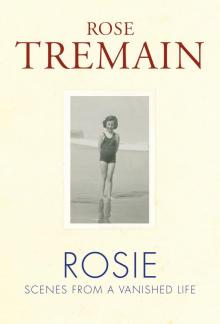 Rosie
Rosie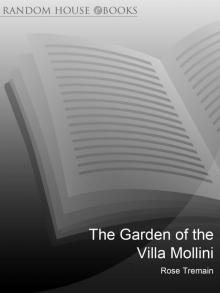 The Garden of the Villa Mollini
The Garden of the Villa Mollini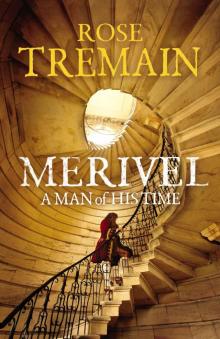 Merivel: A Man of His Time
Merivel: A Man of His Time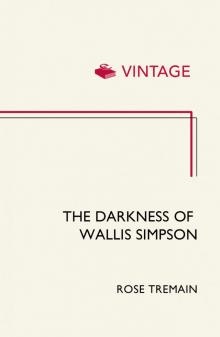 The Darkness of Wallis Simpson
The Darkness of Wallis Simpson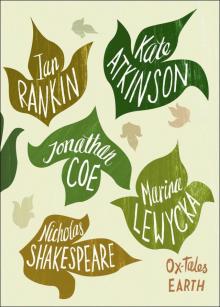 Earth
Earth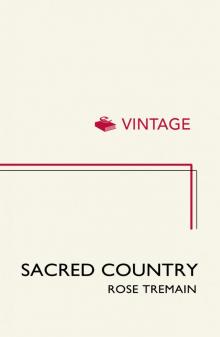 Sacred Country
Sacred Country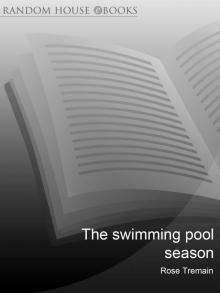 The Swimming Pool Season
The Swimming Pool Season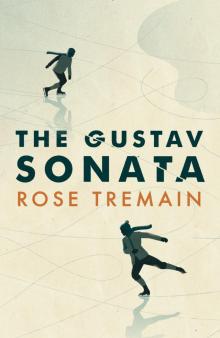 The Gustav Sonata
The Gustav Sonata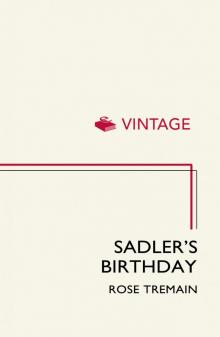 Sadler's Birthday
Sadler's Birthday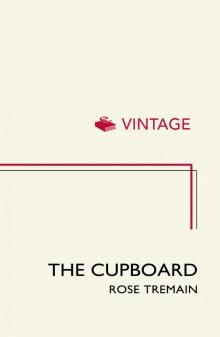 The Cupboard
The Cupboard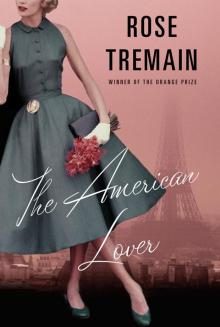 The American Lover
The American Lover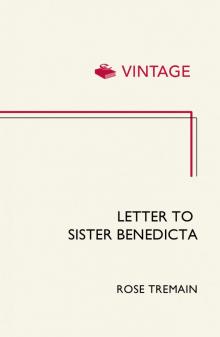 Letter to Sister Benedicta
Letter to Sister Benedicta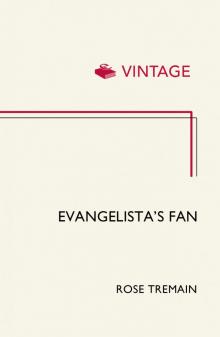 Evangelista's Fan
Evangelista's Fan Restoration
Restoration The Road Home
The Road Home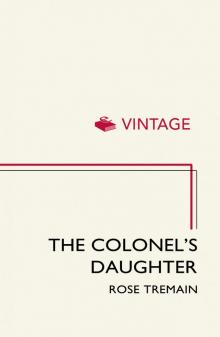 The Colonel's Daughter
The Colonel's Daughter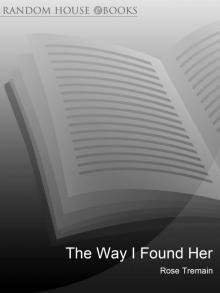 The Way I Found Her
The Way I Found Her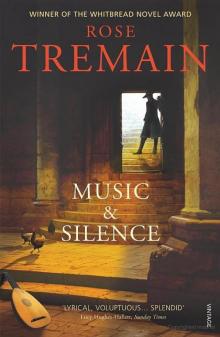 Music & Silence
Music & Silence